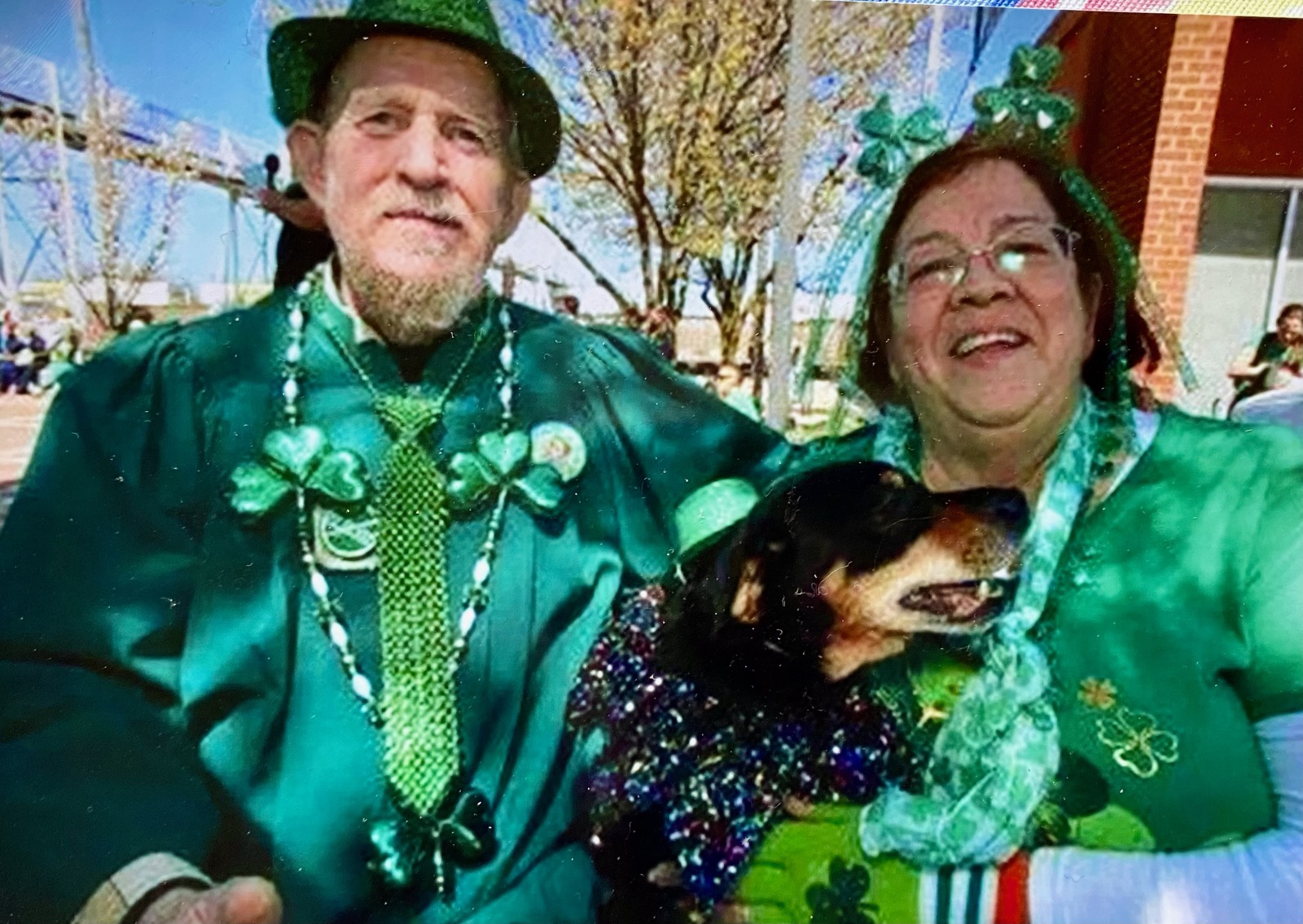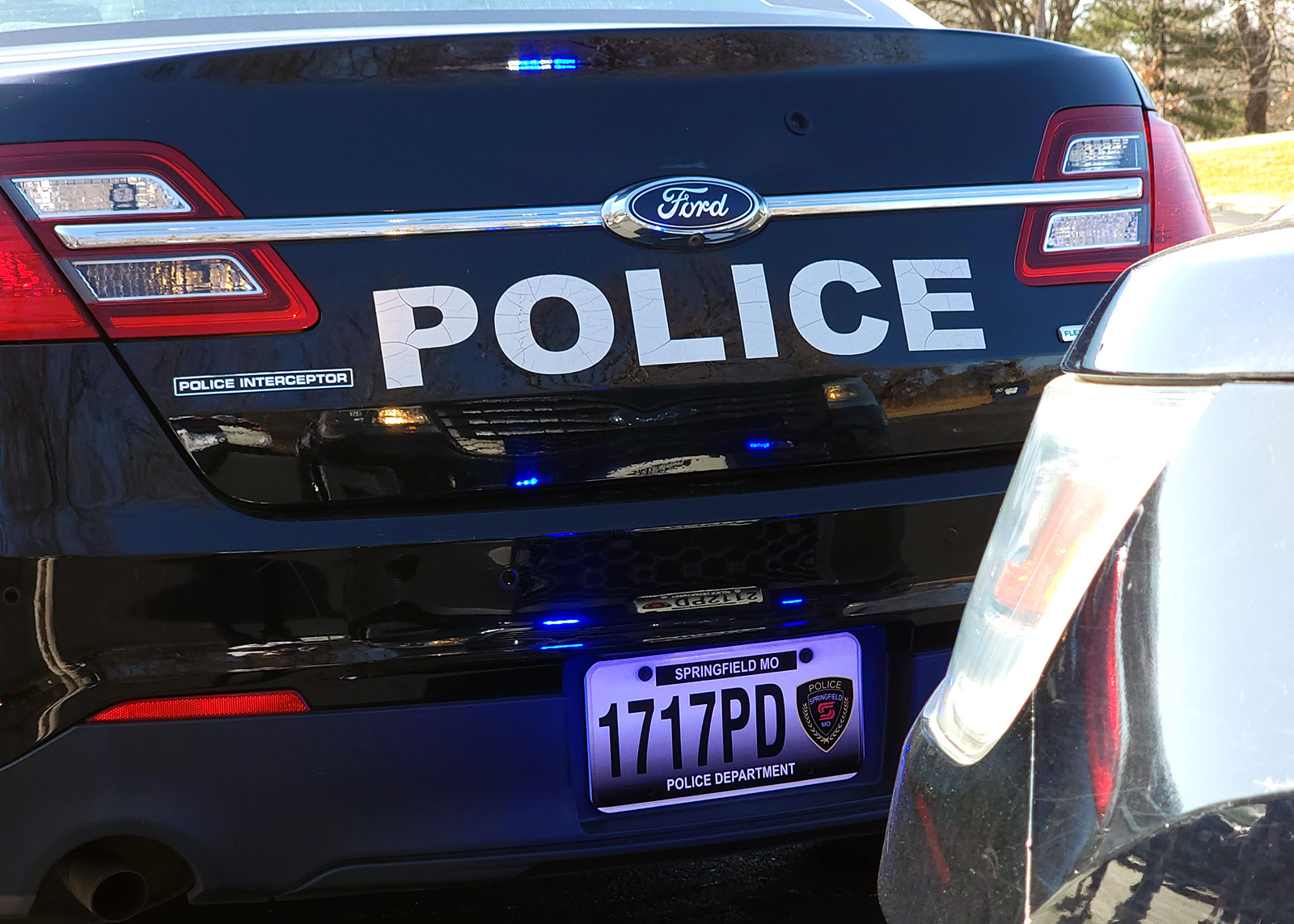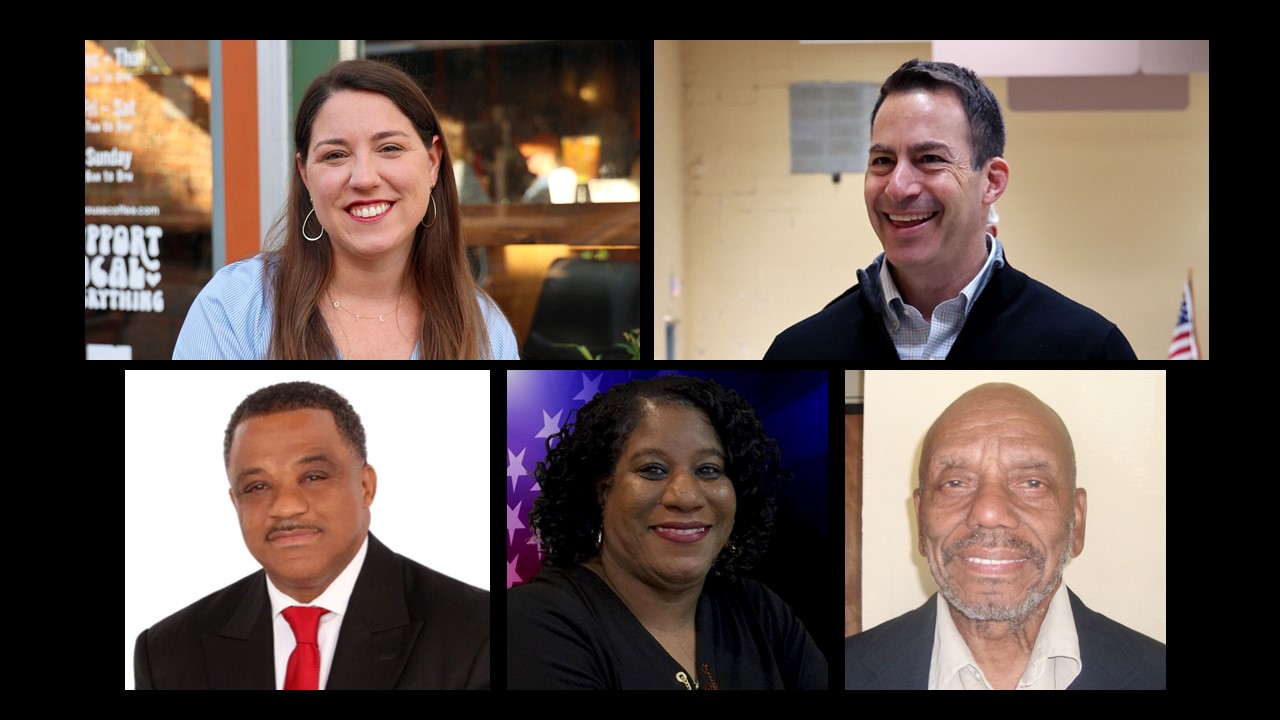Stories abound about Truly Applegate — and his kindness, his wisdom, his strength, his patience, his courage, his compassion.
But perhaps none better illustrates the force of his personality than a bullet-riddled incident in which Springfield police officer Truly Applegate resurrected his former self, Ozark High School biology instructor Truly Applegate, and used his “teacher voice” to talk a drug-addled gunman into peaceably surrendering.
It was a wintry night in 1980 when Truly was one of four city cops dispatched to a northwest Springfield motel where a man had broken into a room. Seeing the lawmen approach, the man fired two dozen rounds from a powerful .45-caliber automatic pistol, with the slugs piercing a metal door and digging divots into the brick wall of a nearby restaurant but narrowly missing the officers.
It was a different era in law enforcement — no SWAT team, no military garb and weaponry, no armored tactical vehicle. Instead, the policemen used the motel’s telephone system to contact the gunman.
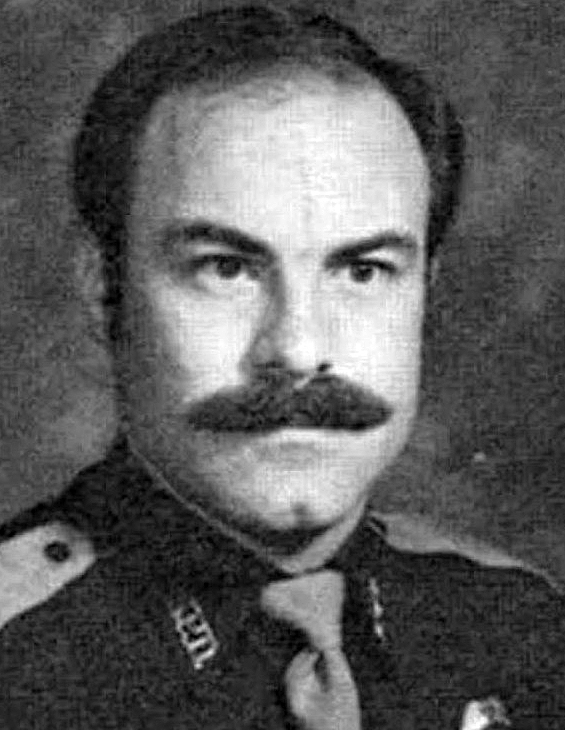
When the shooter heard that it was Corporal Applegate on the other end of the line, he exclaimed: “You mean Truly Applegate who used to teach school at Ozark?”
And after a calm chat with Truly, the guy quietly surrendered.
“It was a highly volatile situation but we worked it out,” Truly was quoted in the next day’s newspaper. “We took our time — and it makes you feel good that nobody got hurt.”
That episode doesn’t surprise anyone who knew David Richard Truly Applegate — his actual legal name — who died Sept. 16 at the age of 75. His family, his friends, his colleagues at police headquarters, the county and federal courthouses and elsewhere praise his extraordinary ability to connect and to empathize with all sorts of people in all sorts of situations.
“In watching Truly interact with people, I learned so much,” says Kathy Raymond, who met Truly 32 years ago when she was hired onto the Greene County prosecuting attorney’s office staff. Truly was still with the police department at the time, but later joined the prosecutor’s office as an investigator.
“He could de-escalate a situation quicker than anyone,” Raymond says. “People would come into the office so angry and agitated but, after talking with Truly, usually they would leave with a better understanding of the process — and some would even have a smile on their face.”
Karen Scott agrees. She got to know Truly when she was Springfield Public Schools’ coordinator of student counseling. “Oh, my gosh, he was amazing. Truly was always the bright light in the room. He could disarm anybody with his charming personality.”
Scott’s and Truly’s work intersected because he was SPD’s chief investigator of child abuse cases. She marveled at his ability to remain positive and adaptive in a heart-rending and stomach-churning job.
“Truly saw and heard the worst of what adults can do to children. And so many people who do that become jaded or get very negative. But Truly didn’t, because he was able to focus on the difference he was making.
‘He had a real heart for children'
“He had a real heart for children. He was such a contrast in how gentle and nurturing he could be in interviewing children, yet fierce in making sure that perpetrators were brought to justice.”
In the 1990s, Scott and Truly served on a statewide governor’s task force studying the administration of justice to children.
“We were the ‘lone rangers’ from southwest Missouri. There were sophisticated well-to-do’s from St. Louis and Kansas City on the task force, and they tended to kind of regard those of us from down here as less-thans. But Truly’s combination of personality and professional knowledge quickly turned that around.
“The members became quite interested in his views on a lot of issues that came up as we worked on various things with regard to children’s justice. He really was a leader in that on the task force as well as in this community.”
Truly was not a nickname
Truly was born in Oklahoma the son of a preacher, James Henry Applegate, who everyone knew as Hobo, a nickname hung on him because he rode the rails as a young man before finding the pulpit.
Truly was not a nickname; it had been the name of one of Hobo’s buddies in the Army, and it was officially entered on Truly’s birth certificate.
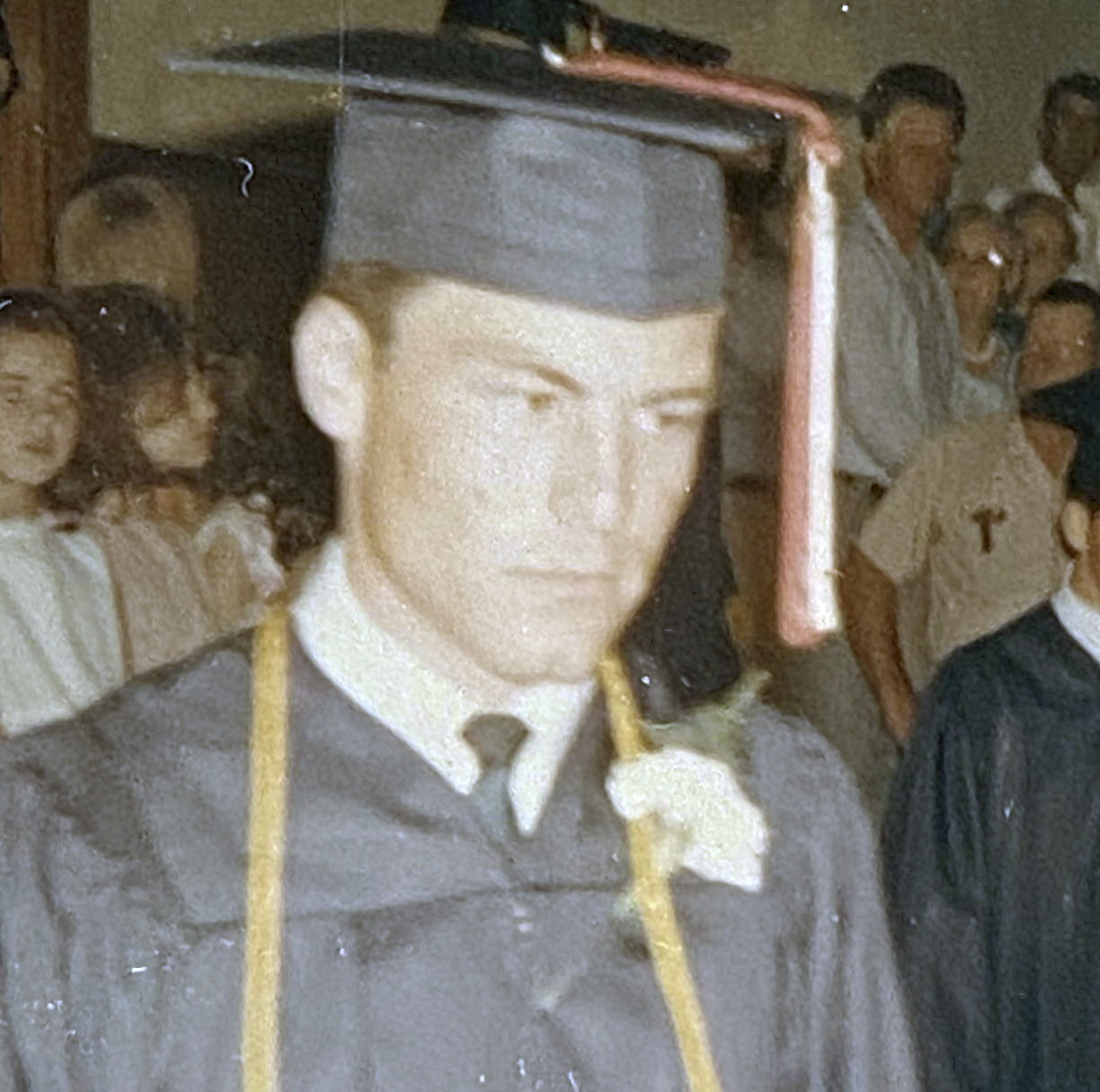
The family moved around during Truly’s childhood before Hobo settled in at High Lonesome Church in Douglas County in the 1960s.
Truly enrolled at Chadwick High School, graduating with the second-highest grade point in the Class of ’65.
He then moved on to School of the Ozarks (now College of the Ozarks), majoring in life sciences with a minor in Spanish.
Truly signed on as a biology teacher at Ozark High School and soon joined the administration there as assistant principal. However, “he always talked about being in law enforcement,” says daughter Leana Shearer. “So while he was teaching school he applied to the Highway Patrol. But they had a height requirement back then, and he didn’t meet it. He was maybe 5-10 on a good day.”
Not long after that turndown, Truly heard that Springfield was recruiting new police officer trainees. He applied and was accepted, officially joining the force as a patrolman in 1975 at age 27.
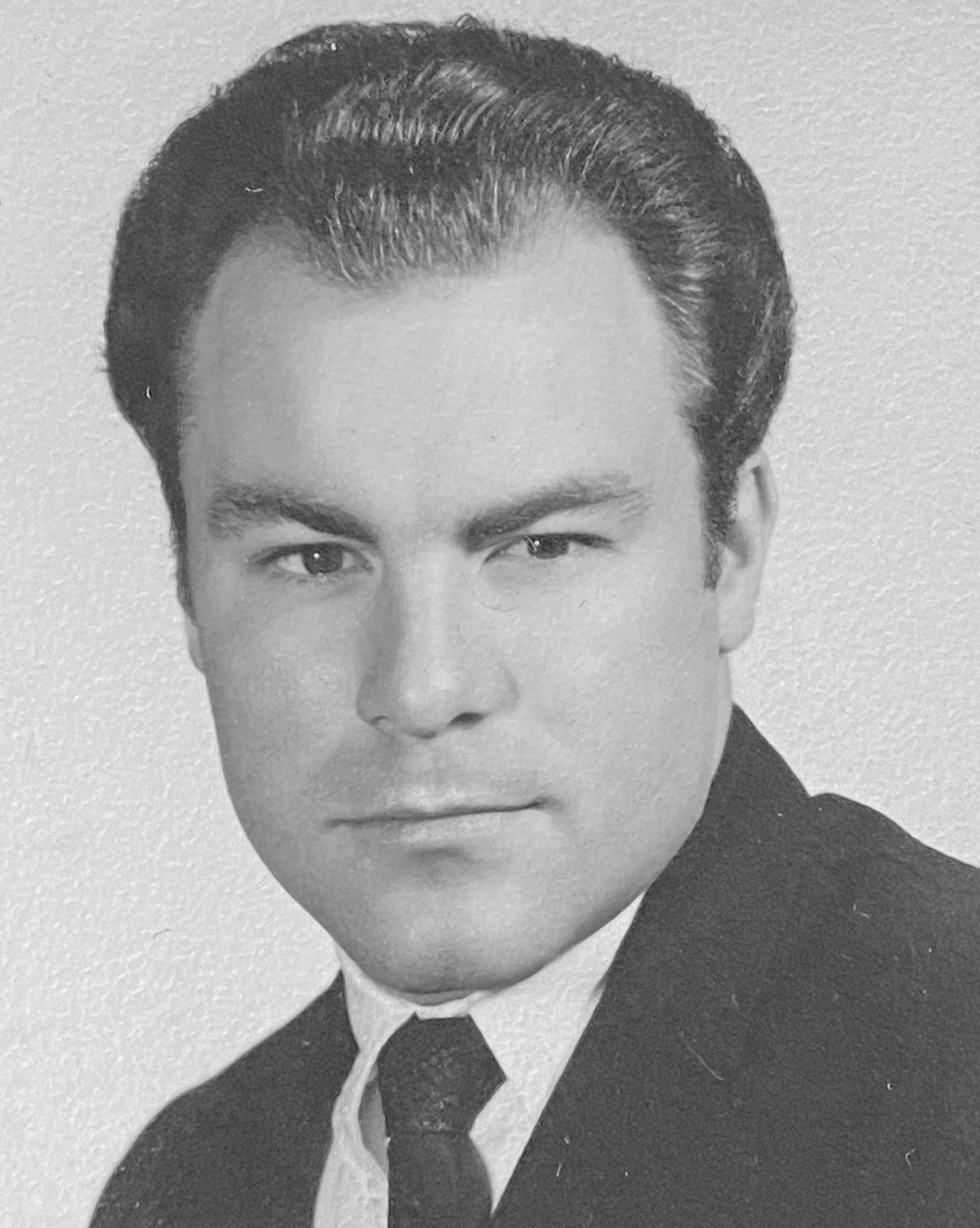
One of his first assignments was to work undercover in illegal drug investigations. “He had to grow out his beard long and scuffy,” recalls his daughter. He used his fluency in Spanish to adopt the persona of a Latino named Roberto.
After a couple of years Truly was back in standard uniform, clean-shaven except for a luxurious mustache that became a trademark look. He was promoted to corporal. And soon after he provided one of his first demonstrations of restraint in the face of danger.
De-escalating a dangerous situation
Responding to a nighttime burglar alarm at a North Glenstone auto parts store, Truly saw a young man sprint from the building. Truly chased him on foot for several blocks until the fleeing suspect tripped over a metal sign attached to a stake driven into the ground.
A court transcript recounts that the young man “picked up the sign and drew it back like he would a baseball bat. The officer re-holstered his previously drawn revolver because the defendant appeared to be a very young man, possibly a juvenile. However, the corporal’s concession to armed force did not deter the defendant, who attacked the officer with the narrow knife edge of the sign.”
Truly was bruised on his forearm, shoulder and back in the ensuing scuffle, but he subdued and handcuffed the suspect, who turned out to be 21 years old and was subsequently sentenced to seven years in prison for burglary and five years for assault.
That Truly would win such a battle barehanded was no surprise to those who eyed his impressive physique. He may not have been tall enough to be a state trooper, but he had a barrel chest and rippling biceps.
“Truly was the strongest man pound-for-pound that I ever met in my life,” says friend Kim Bradley.
Attorney-turned-chocolatier Shawn Askinosie recalls an encounter with Truly while obtaining police reports regarding a client:
“I knew he was strong — his forearms were like the bottom end of a bowling pin. We were talking, and he just got out of the wooden chair he was sitting in and proceeded to face the chair, grab each arm of the chair and literally do a perfect handstand. It was easy for him, and he loved doing that little trick — and I loved him for it.
“Truly was a real person,” says Askinosie, “honest, friendly and strong as hell.”
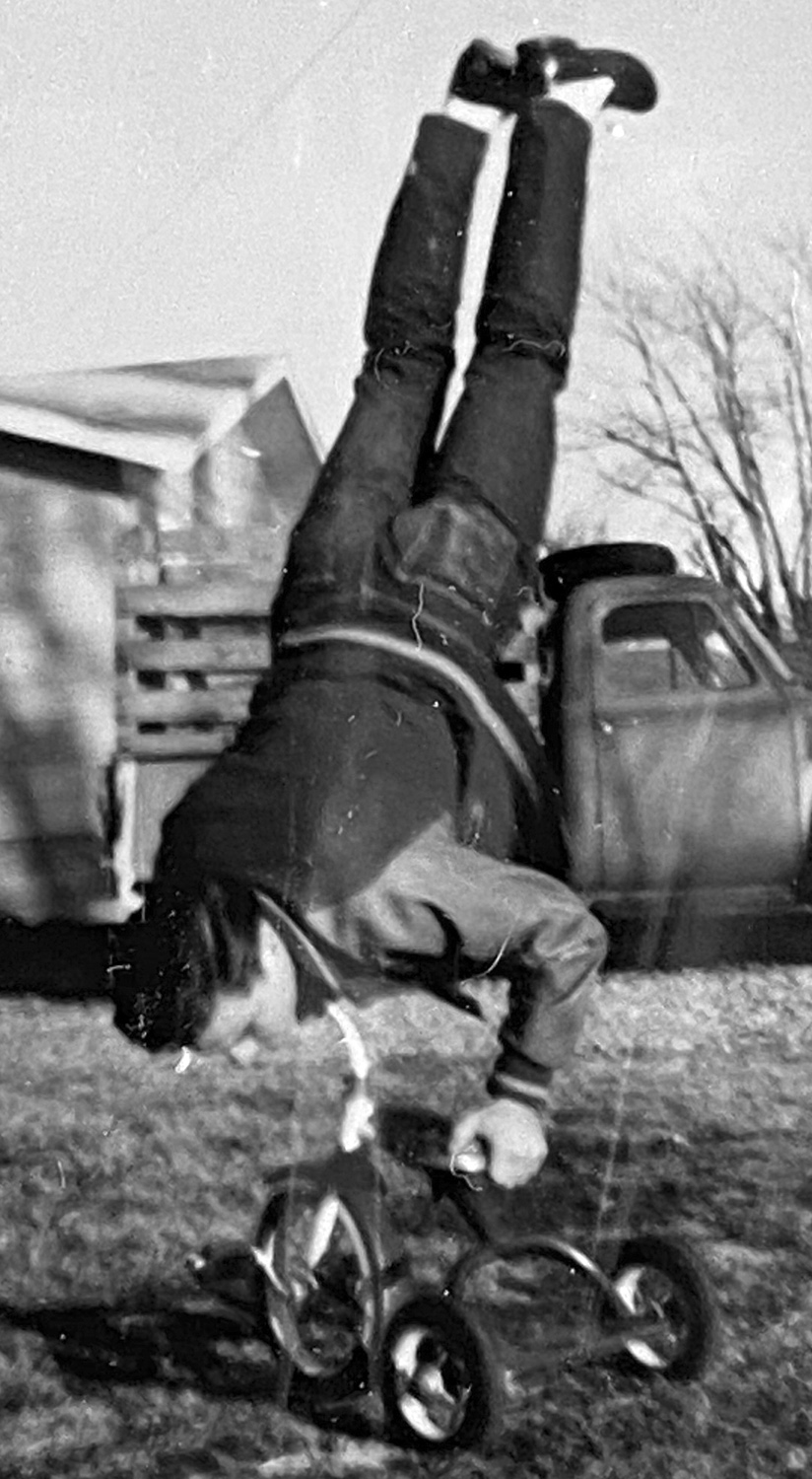
Daughter Leana says he used acrobatics in the classroom at Ozark High: “He would do handstands in the middle of class when he was teaching, to see who was awake. He could do it while just continuing to talk in a normal voice. But if you didn’t react to seeing him go upside-down, you obviously weren’t awake.”
Truly’s “normal voice” was a baritone, which he often employed in singing. “His voice was deep — very, very bass,” says Leana. “He could hit the really low notes.”
He sang at Hobo’s Sunday services, where he first met Judy Eilene Thompson. She was 13 and he was 15. A year later they went on their first date, and after a five-year courtship they married.
A man of many talents and interests
Judy, who survives, could sing as well. “They sang together in my grandfather’s church and at other churches and revivals, they were a staple at funerals, they sang at my wedding,” says Leana. “They did that until it was possible to get church-music recordings on CDs, and then singers weren’t needed as much anymore.”
Truly had other interests that might surprise those who knew him only as a law-enforcement officer, says his daughter.
“He didn’t stop going to school until just not very long ago, and then only because of his health,” Leana says, noting that he was a student at Missouri State University, Drury University and other schools at various times. “If he came across something he hadn’t learned yet, he’d go. He’d take classes anywhere about anything.”
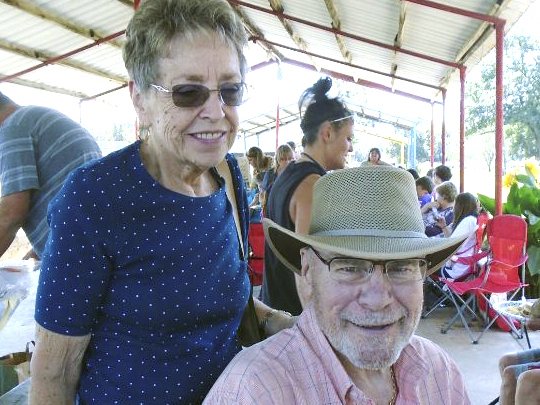
His hobbies included woodcarving and landscape painting, and “he wrote poetry from a very young age. He used to write poems to my mom all the time. I mean, he dabbled in most everything at one time or other.”
Gardening was another avocation. “If you go by my parents’ place, you can’t see the house for all the vegetation in front,” Leana continues. “He put in two big koi ponds in the front yard, and lots of water lilies. He liked anything colorful. Japanese maple trees were a favorite. And he did a lot of little bonsai trees for a while — he was into everything for a while.”
Cars were another passion. “He went through cars like water. Everything from a gigantic orange Chevy Suburban that we called The School Bus to a little frog-like Porsche sports car. He could find a reason to own everything.”
On the job, Truly earned respect from colleagues.
“He was very fair-minded, very thorough, very methodical,” recalls Charlie Jerman who served as an SPD officer with Truly. “He took his time to get to the bottom of a case, and took it as far as he could every time. Truly took a lot of stock in protecting victims and looking after victims in an investigation.”
Jerman notes that Truly “seemed to have a little bit of a grin on his face all the time. I don’t want to say he was jovial; in that business you’re not always jovial. But I don’t think in all the years I knew Truly that we ever had a discussion in which he said he disliked somebody. Not that he liked everybody — he just didn’t have a dislike for anybody.
“That type of demeanor sometimes would lend itself to an ability to interrogate someone without it seeming like it was an interrogation. And that could be an advantage.”
Even though news reporters back then had relatively free access to police headquarters and personnel — unlike today when headquarters is mostly locked down and only designated public information specialists are generally allowed to speak to the press — some officers were skittish around journalists. Not Truly.
A News-Leader “cop shop” reporter in the late 1970s and early ’80s, Jim Wilder, sometimes had difficulty obtaining details beyond the basic handwritten crime reports turned in by patrolmen and detectives after every shift. “Some officers were afraid to give further information, even when there wasn’t anything controversial,” says Wilder. “Fortunately, Truly wasn’t one of them. If he couldn’t answer a question, he normally could refer me to another officer who could. He was a down-to-earth guy.”
Truly earned respect from defense attorneys
Local defense attorney Dean Price says he was introduced to Truly as the police polygraphist (lie-detector machine operator) when representing a young burglary suspect who, against Price’s advice, offered to take a polygraph test.
Although in civilian clothes — “polyester slacks, big ugly eyeglasses and a tight short-sleeve dress shirt with a cuff in the sleeves to show off his impressive biceps” — Truly was honest with his client, Price says.
“He told my kid he was a policeman, and that any answers he gave in the interview were subject to being used against him. My kid passed the polygraph … (But) most cops and prosecutors believe them only if it shows the witness was lying.
“Not Truly. He believed my kid was innocent and he prevailed upon the prosecutor to not file charges. It is the only time I can remember such a thing happening.”
Another local defense attorney, Stacie Calhoun Bilyeu, offers a similar assessment of Truly:
“I was on the other side from Truly, court-wise. That never mattered to Truly. He extended me his best self all the days that I knew him. Always kind, always smiling, always encouraging. Because that was how Truly rolled. Boy, could this world use more folks like Truly!”
Truly retired from the police department after 22 years in 1997 and went to work for friend Kim Bradley at Bradley’s Springfield car lot, where he’d bought personal vehicles since the late 1970s.
“He really was mostly helping me out as a friend,” Bradley says. “We had a special friendship. Some people in your life you feel like have got your back, and Truly was that kind of person for me. Closer than a friend; more like a brother.
‘Kind of a fetish for Corvettes'
“He loved cars, and he got to drive cool cars with this job. He had kind of a fetish for Corvettes, and he drove those for a few years. But he liked variety — he’d go from a Corvette to a little truck to a four-wheel-drive Blazer.
“I’d sell him a car for what I paid for it, with the understanding that if I could sell to someone else at a profit, I would. One time I had to go to the police station and told him to get a box and get all his stuff out of his car because I’d just sold it out from under him. He thought that was pretty funny.”
During that late-1990s period, Bradley was starting Project Hope, a ministry with a mission of providing medical supplies and other vital needs to struggling communities. In 1997, Bradley needed to make the first of many delivery trips to Nicaragua, but he was worried because he couldn’t speak Spanish. He knew Truly was fluent in the language.
“I just said, ‘Truly, I need you to go with me.’ And he was just like, ‘OK, when are we leaving?’ If I really needed something, I don’t think there was anything I could’ve asked for that Truly wouldn’t have done for me.
“If you could live up to the standards of Truly Applegate, you knew you’d achieved something.”
After three years away from law-enforcement work, Truly answered a call from Greene County officials who wanted him back for courthouse security duty.
Kara Waterman, who had met Truly when she worked in the prosecutor’s office in the 1980s before leaving to raise her children, recalls going to the courthouse in the early 2000s for the first time in about a dozen years when she returned to the workforce at a local law firm:
“As I entered the door, without seeing who was talking to me, I heard a man’s voice loudly say: ‘Where have you been?’ I didn’t even have to see his face to know who it was. I was just amazed how Truly recognized me after all those years!”
Waterman says that when she’d worked for the prosecutor, Truly “would come through the office doors with an ornery smile on his face and a funny story to tell. I do not recall him ever having a bad day — or if he did, he never showed it.
“He treated everyone with respect and was honest as the day is long.”
Joined security at federal courthouse
Truly eventually was lured to the federal courthouse to work in security there for a while. Then he went back to the county to serve as an investigator in the prosecutor’s office.
Circuit Judge Ron Carrier remembers that when he first met Truly, “I was a wet-behind-the-ears assistant prosecutor and he was a seasoned detective. What I didn’t realize until later was that by working with Truly I was going to be fortunate enough to learn from one of the finest law enforcement officers I would ever meet.
“He set the bar for thoroughness and professionalism. But he also set the bar for everyone in an entirely more important way: Truly defined what it means to be a good and decent human being. I challenge anyone to find someone who ever said or heard a bad word about Truly Applegate — you won’t.”
Greene County’s present prosecutor, Dan Patterson, echoes Carrier’s sentiments:
“Truly was so supportive of our office in every way. He took it upon himself to make our cases better. He was tireless — in fact, he worked so hard that we would often have to force him to quit working on something.
“He was always the person who made sure that if someone had a baby shower or an event when he or she was being recognized, he always was the guy who took the pictures. He never was in the pictures himself unless we forced him.
“Most of the support that Truly provided to our office was, of course, professional as our investigator, but also as someone who always had positive energy that made working in this difficult field so much better.”
Truly loved photos and birthdays
Assistant Prosecutor Emily Shook also remembers Truly’s penchant for photography:
“He treated us all like family. Every time someone had a baby, he would go to the hospital and take a photo and send it to us and announce that we were all aunties and uncles. He took pictures of everything that happened — birthday parties, food days, the annual Halloween event — and he would do a slide show at the Christmas party every year.
“He was very dedicated to getting things right for us. He would go back into the field to get the right photos for a trial exhibit. Back before we had a lot of technology, he knew who had a big plotter to print a huge map, and just how to paste things to foam board to make a professional-looking display.”
And, says Shook, “he was really good with people. Good at making friends and getting them to cooperate, but also good to have backing you up when someone wanted to argue or otherwise be aggressive with one of us.”
Truly’s attention to birthdays extended beyond co-workers. He seemed to know the dates of birth of almost all his friends.
“He would inevitably hunt me down on my birthday for years and wish me a Happy Birthday, or send a message to me,” says defense attorney Carol Hutcheson. “He did this without Facebook. I asked him about it one time and he said, ‘Once I know someone’s birthday, I write it down and keep track.’
“I was just someone that Truly saw only once in a while professionally,” Hutcheson says. “He seemed to honestly love and appreciate people. He had a tremendous amount of passion and compassion — and not just for rich people or influential people, but for everyone.
“I’m not sure how that heart fit into that body.”
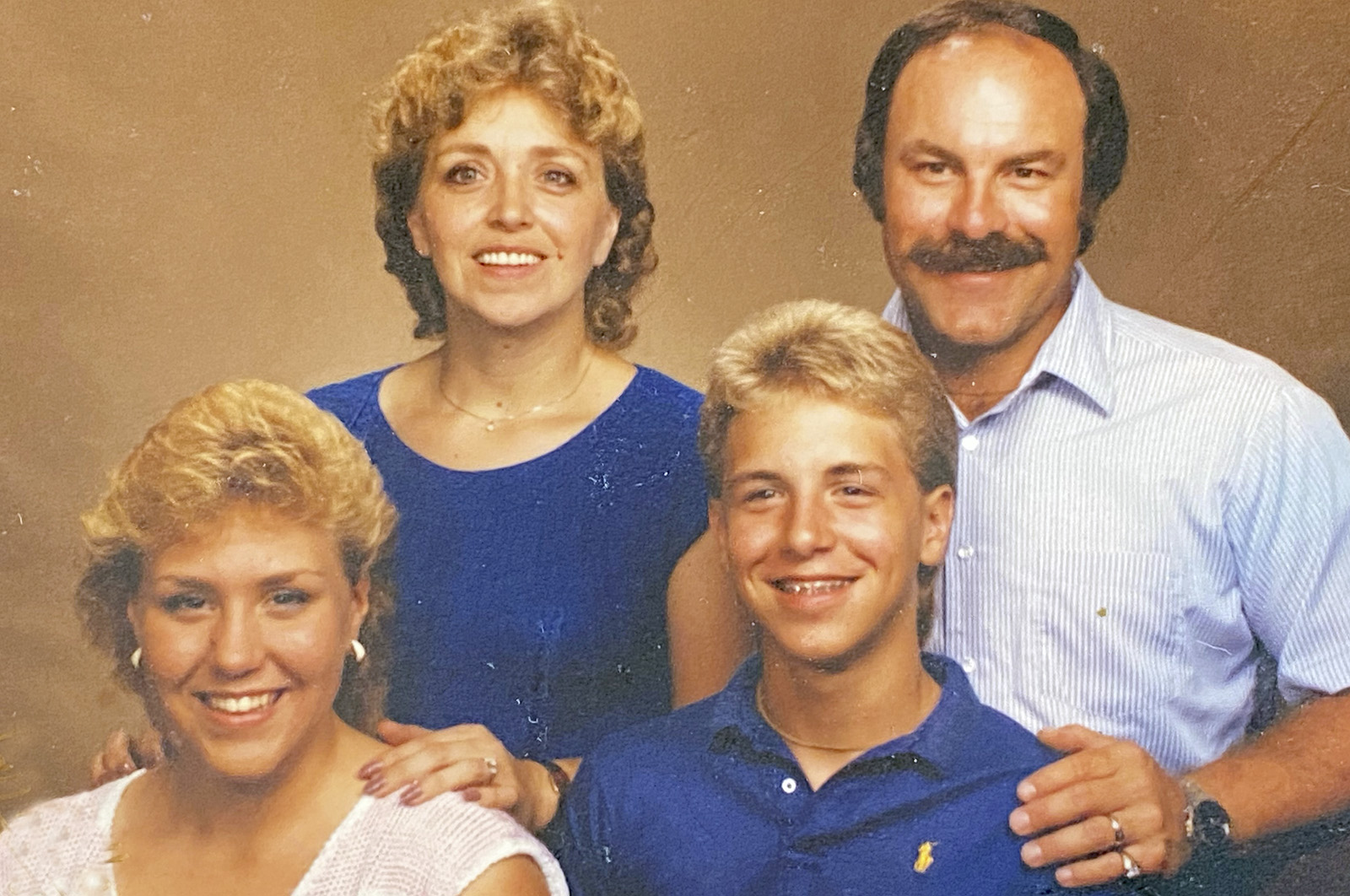
Family was keenly aware of his dedication
Daughter Leana knows how her dad kept up with so many birthdays: “He had a little book that he kept in his shirt pocket, and it had everybody’s birthday recorded in it. And every day he started off by calling to wish Happy Birthdays.”
Leana says she and her brother, Graham, who lives in New Mexico, enjoyed Truly as their dad at home although they were keenly aware of his dedication to his job.
“He absolutely loved working for the prosecutor’s office because it reminded him of the police work he had done earlier. He loved the investigative part of it, he loved the people part of it, he loved putting the bad guys away.
“We knew if we had a band concert or a softball game that he might not be there because, even if he wasn’t on duty, he might be called in to translate Spanish for someone. We never, ever doubted that he loved us, but he was dedicated to his job.”
Truly changed, however, when Leana announced that she was pregnant with her only child, son Dustin.
“It was like a switch flipped that day. He became a different person. He softened — not that he had been cold to us ever. He was a tough father, but I’m not saying that as bad in any way. But he thought the sun rose and set on Dustin.
“He was loving and terrific. I could not have asked for a better grandfather for my son. Dustin called him ‘Grandpa Encyclopedia’ because, he said, ‘Grandpa knows everything!’”
The last couple of years were an ordeal for Truly. He was diagnosed with multiple sclerosis, which sapped his arm strength and the feeling in his hands, and he had a degenerative back condition that caused him pain and limited his movement.
When he sensed the end was approaching, he asked his family for only one thing regarding a memorial service: He wanted “Zip-a-Dee-Doo-Dah” played, the Oscar-winning ditty from the 1946 Disney movie “Song of the South.”
“He loved that song,” says Leana. “He wanted that played for as long as I can remember. It was the only thing he really did ask for if we had a service.”
Zip-a-dee-doo-dah, zip-a-dee-ay
My, oh, my, what a wonderful day
Plenty of sunshine headin' my way
The cheery melody and lyrics brought smiles among the some 250 persons who overflowed the chapel at Adams Funeral Home in Ozark. Somehow, many said, the song seemed a fitting reminder of the sunny personality of Truly Applegate.


